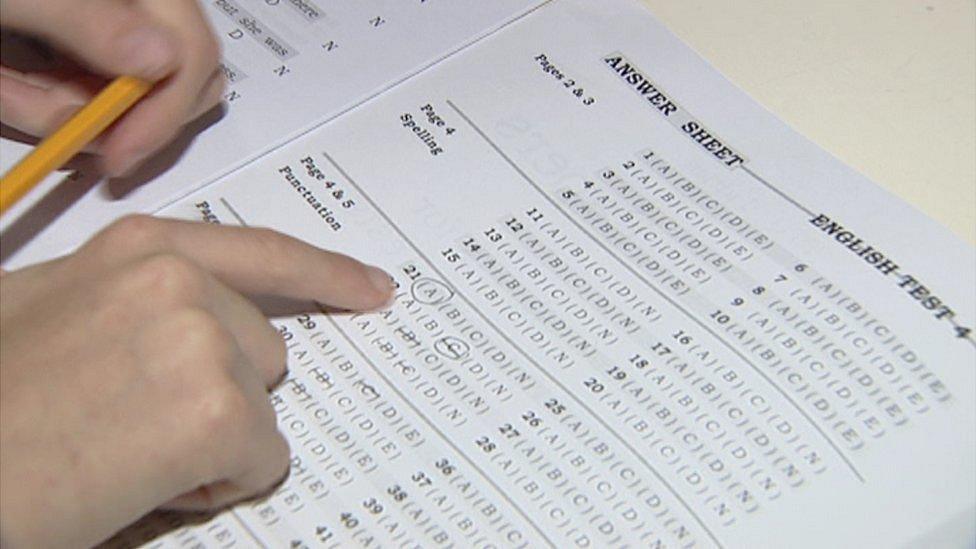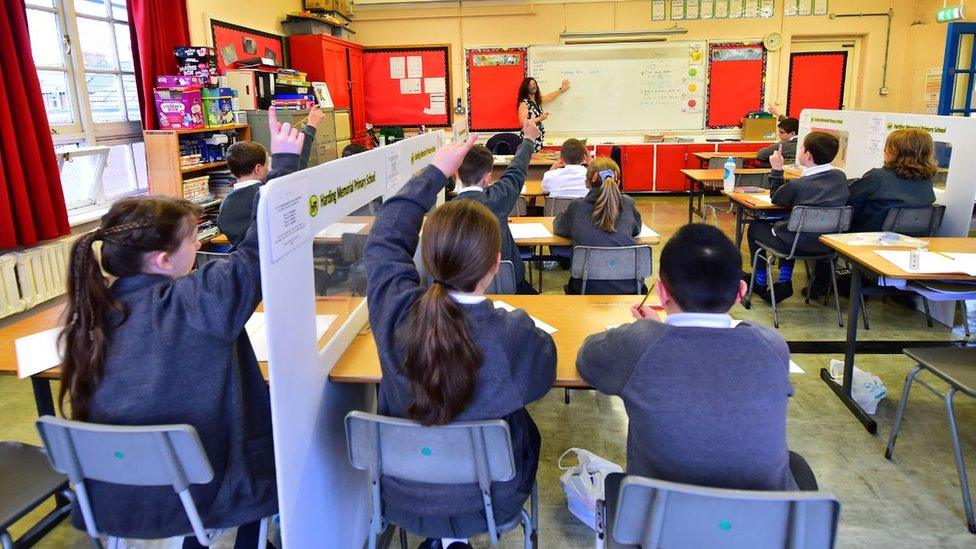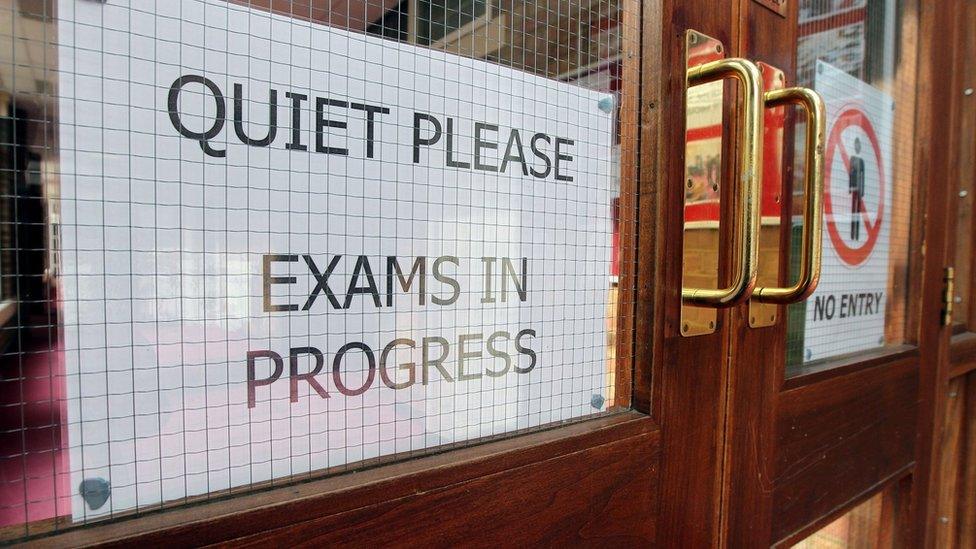Transfer tests: Teaching unions seeking 'Plan B'
- Published

The five main teaching unions have made a joint call for "alternative arrangements" to the transfer test to be put in place.
The Northern Ireland Teachers' Council (NITC) said they were concerned at an "apparent lack of contingency planning".
The majority of grammar schools use the tests set by AQE and PPTC to select pupils.
They usually take place in November but have been postponed until January 2021.
That is due to disruption to schools caused by the coronavirus pandemic.
Eleven Catholic grammars and the integrated school Lagan College have decided not to use them to admit pupils next year.

One of the test providers, the AQE, has said a number of safety measures will be in place for pupils sitting the tests in January.
However, the NITC has said the testing organisations need to be clear about their "Plan B" if the tests cannot take place.
NITC is a joint body which represents the five main teaching unions - INTO, NAHT, NASUWT, NEU and UTU.
In a statement, the unions said they were "increasingly concerned at the apparent lack of contingency planning for the transfer process".
"It remains the case that AQE and PPTC assessments are going to be administered in January of 2021.
"Given the current context and the predicted trajectory of Covid-19, we stress the urgency of planning for the potential eventuality that these unregulated assessments cannot take place."

The unions said that primary school teachers and principals would not be involved in any alternative arrangements.
They said that primary school staff would not predict transfer test scores for pupils, or nominate post-primary schools for pupils to transfer to.
They also said that primary schools would not host any transfer tests.
"Many primary teachers and principals are opposed to academic selection," the NITC said.
"They cannot be mandated to host unregulated and non-statutory assessments.
"The notion of hosting tests in primary schools would lead to inequity."
Some parents have campaigned for the tests to be held in primary schools, rather than have pupils travel to grammar schools to sit them.
The NITC said it was also up to the boards of governors of grammar schools to come up with contingency plans, with guidance from the Department of Education.
"Trade unions have been expressing the need for a Plan B for this year since April but do not believe that there has, of yet, been any concerted effort to seek a viable, alternative form of transfer," the NITC concluded.
"For the sake of our current Year Seven children, we appeal for those with responsibility to make alternative arrangements as a matter of urgency."
- Published4 November 2020

- Published2 September 2020
